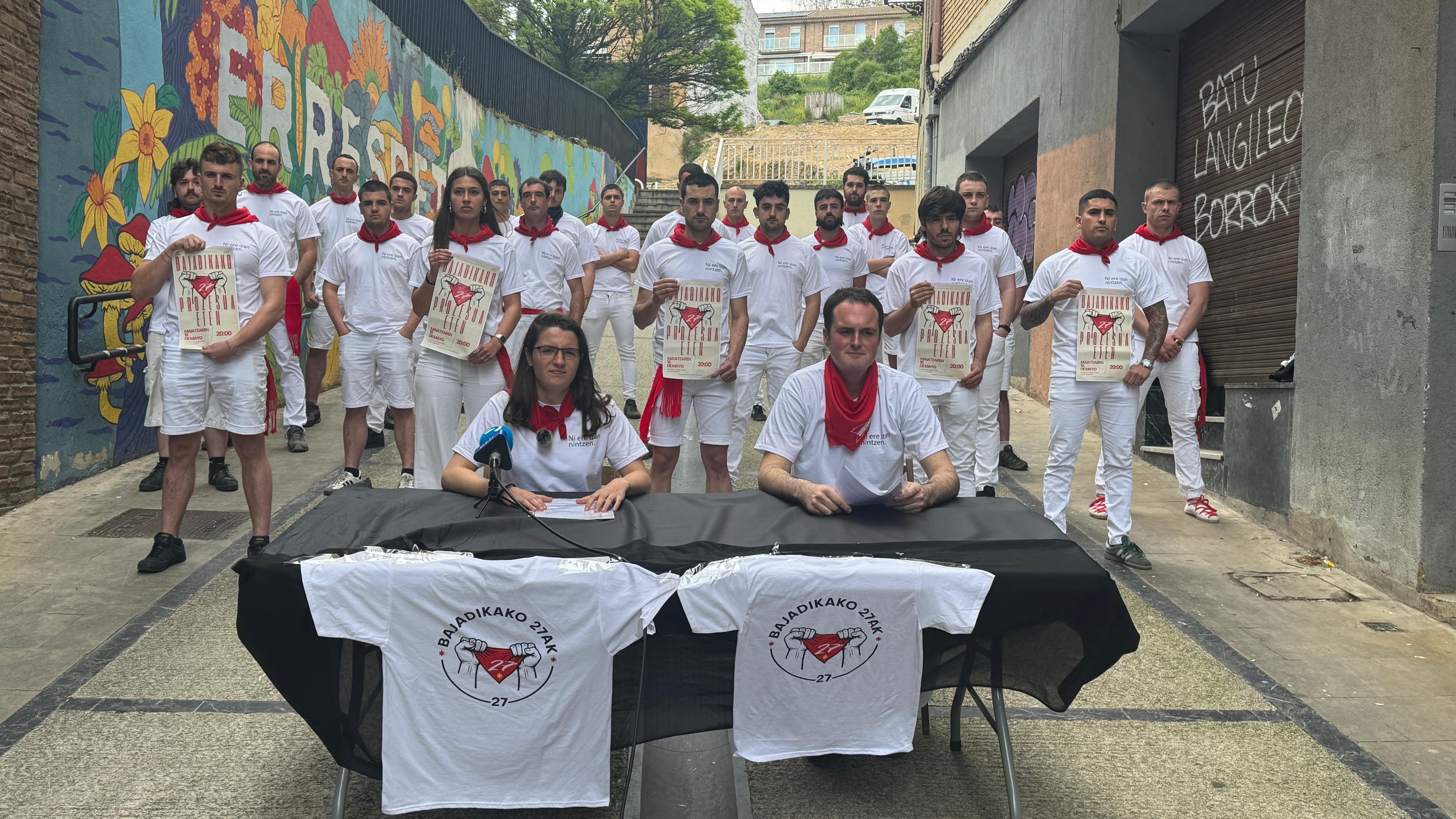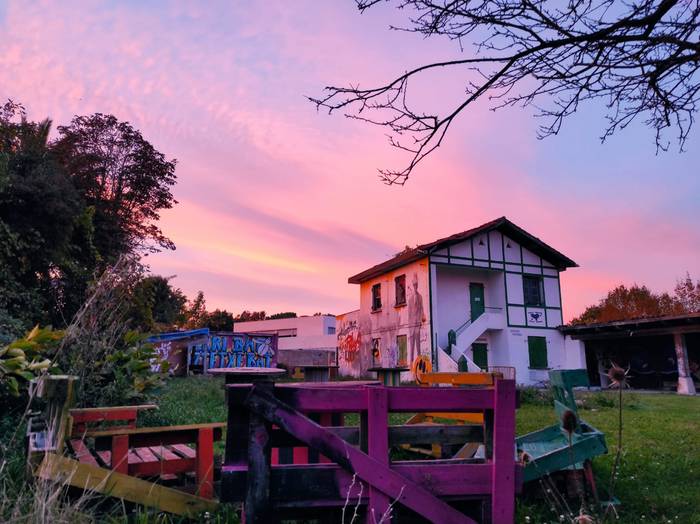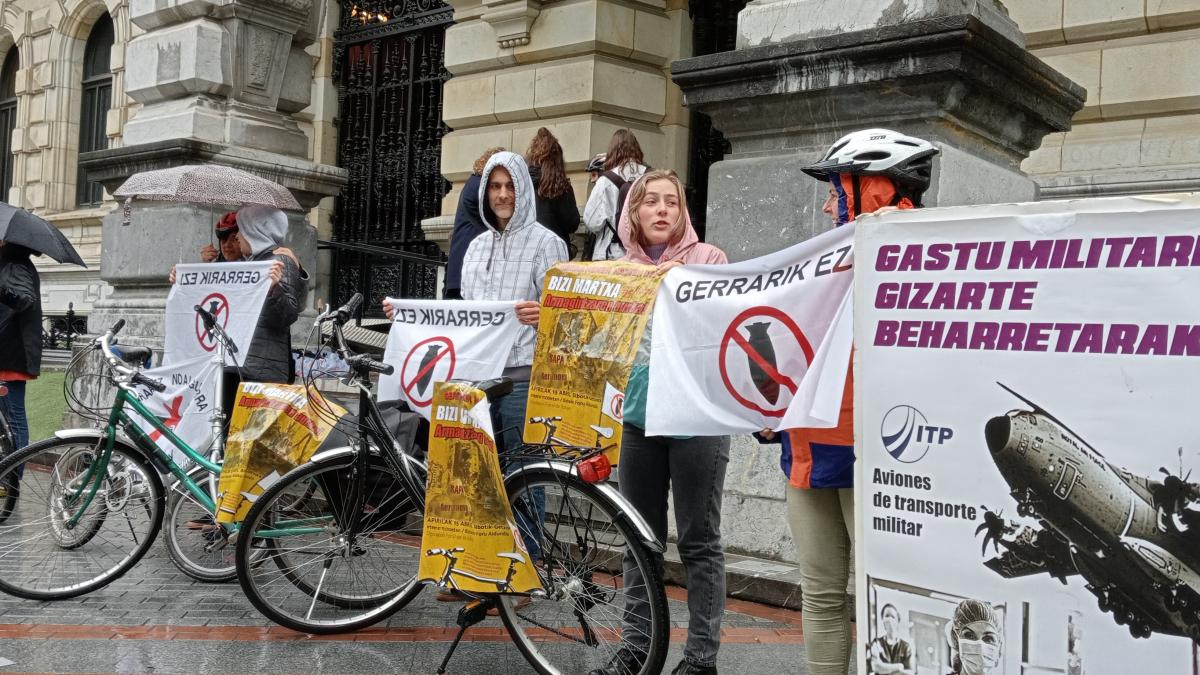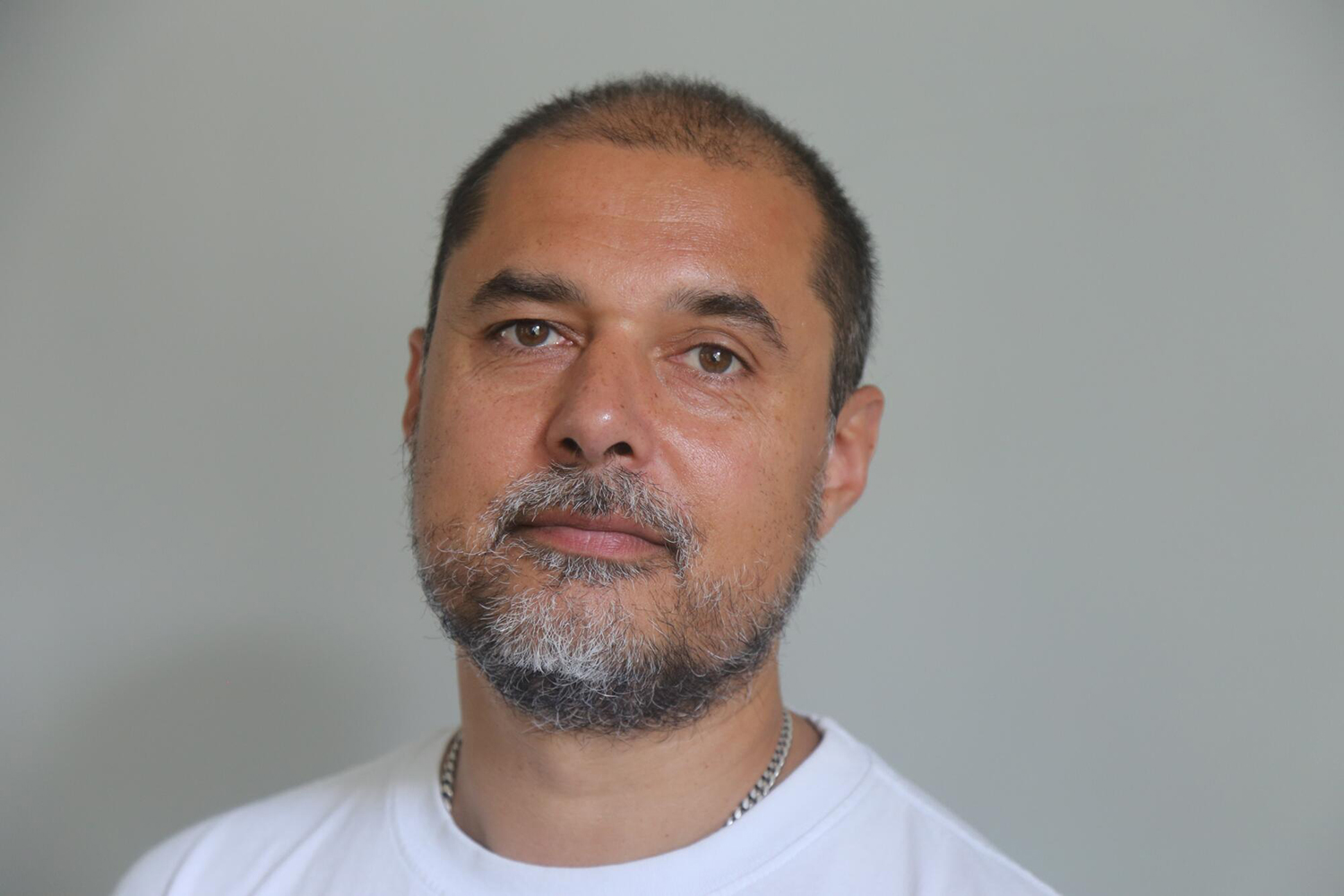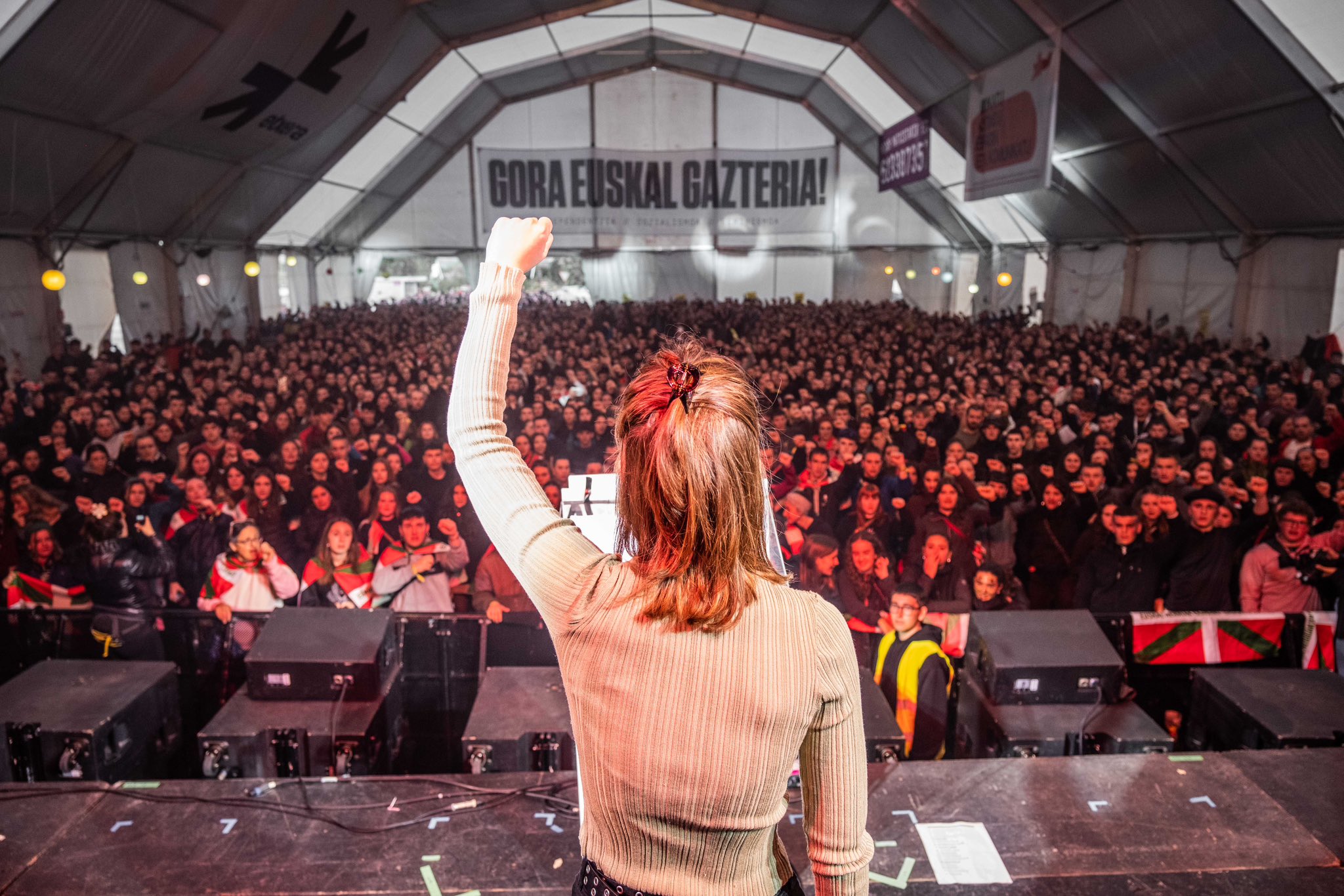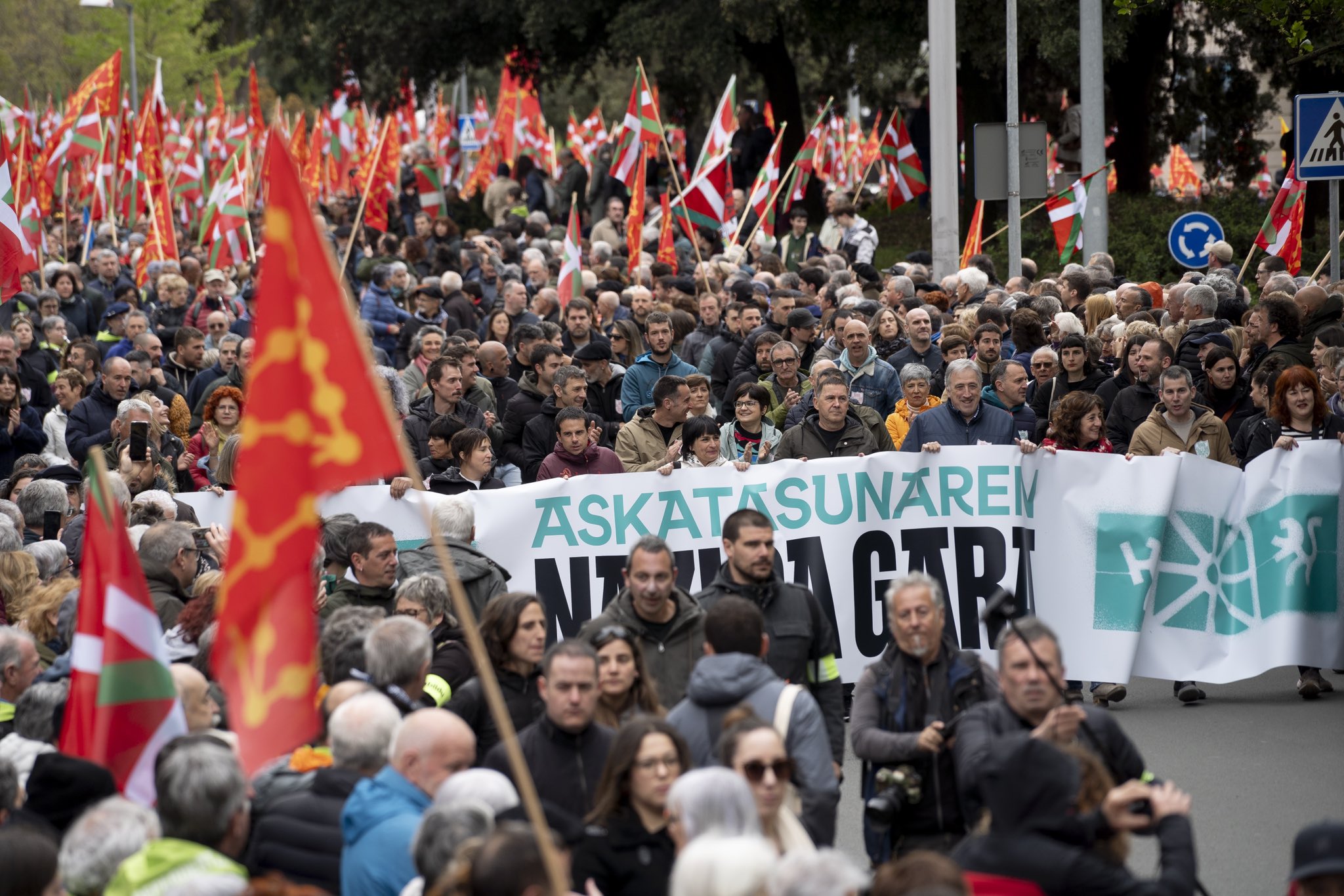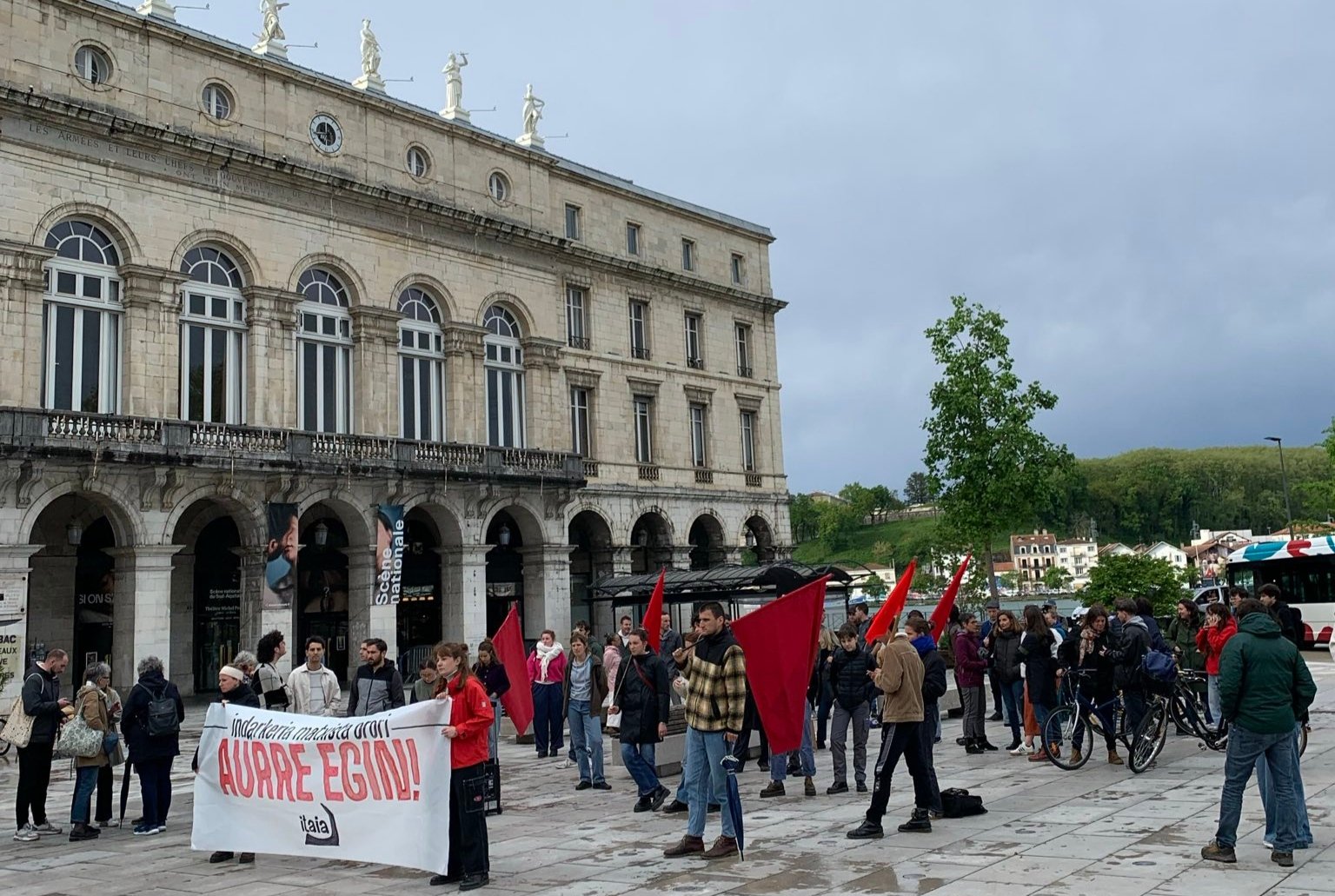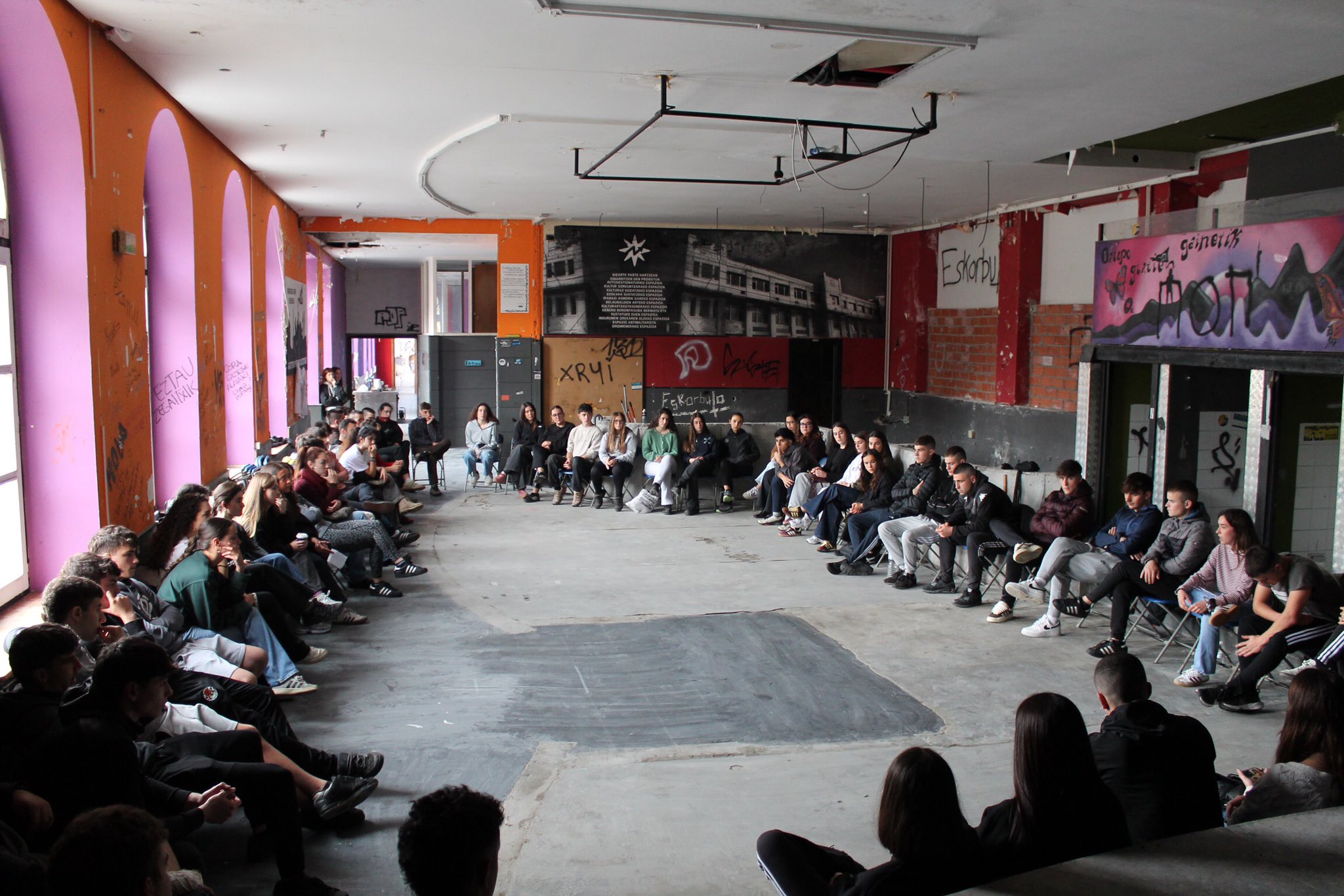Neighborhood associations collaborate to respond to conflicts and racism
- In recent months, media coverage has been taken on several occasions by young migrants occupying sleeping areas, classified as a dangerous problem for neighbors and fed from a punitive and racist perspective. The previous sentence would serve many peoples and especially many capitals, but we are talking about Vitoria. However, since last October, the neighborhood associations in the neighborhoods of Arana, Alde Zaharra, Errota and Judimendi have met to address from a community perspective the problems of coexistence between “neighbors”. ARGIA spoke with the chairman of the Arana neighbourhood association, Peio Salazar Roldán de Aránguiz, to learn about the situation and the work they are doing.

That is the first thing Salazar has stressed to us, that the problem is not one neighborhood or another, nor Vitoria. Because it is a direct consequence of the model of society and therefore are situations that are repeated in many places. It refers mainly to young people from the Maghreb, who have reached the Basque Country “who knows how hard he has done”, and who are completely unprotected, “without help, without employment, without network, without shelter”. They move a lot. “You can be three months in Pamplona, then go to Bilbao, try in another country and spend some time in Vitoria...”
Salazar says that the will of the majority is to get a job and live with the Vitorians, but they have very few possibilities. They usually enter empty sleeping rooms, not only those with no resources: “In our neighborhood, one of the young people, for example, is working but does not have access to housing and sleeps on the market.” In these living conditions, “some of the young” resort to drug use and theft, with occasional conflicts between them and with other neighbors. In Vitoria-Gasteiz there are about 40-50 young people in this situation, with great urban mobility from the neighborhood to the neighborhood.
In these living conditions, some of the "youth" resort to drug use and theft, with occasional conflicts between them and with other neighbors.
Attitudes of neighbours
Young people are accused of stealing shops, streets or cameras around the camps, they have had fights between them, police interventions are numerous, some with a lot of violence and illegal young people driven out of the camps. The work of various media has raised the alarm. “We are afraid of Christ to some,” he says, highlighting The Mail for “pure sensationalism.” An example of how these media operate: “From Tele5 we were once called to ask a question: when would we call the concentrations in front of the bars.”
Above all, concern has spread in the neighborhood and Salazar says that the attitudes of the neighbors are very diverse, “because the neighbors are different”. An example of this has been heard in the mass assemblies that the association of neighbors has expressly called to speak about the topic: “There were those who wanted to hold concentrations in front of the bars to leave the neighborhood; some went beyond, wanted to enter directly into the market and expel them forcefully; others defended the need to get entangled and foster mutual knowledge to feed the community.” He explains that there are neighbors who are afraid, that to some extent it is understandable because there have been conflicts and robberies, and that the neighborhood also has to know how to respond.
The main focus of conflicts has been moving in recent months. The Casco Viejo was the first, after the problems in Errota, there have been no problems in Judimensiondi, but they are “attentive” to what happened, the prominence Arana took at the beginning of the course... In view of this, the neighborhood associations in these four neighborhoods decided to start working together.

Resolving conflicts between neighbours
The four partnerships share a few foundations. On the one hand, they are clear that the solution is not to expel young people from their neighborhood so that the same situations are repeated elsewhere, not even police. On the contrary, they focus on coexistence and community: “Those on the street are neighbors, so we have to solve problems among neighbors, with the support of institutions.”
It is barely three months since they began to come together, but they have already taken some steps. To start with, they're learning from each other. “In the Casco Viejo the work was very advanced, because problems arose for some time and thanks to the work of associations like Goian,” says Salazar. In the Errota neighborhood, the situation served to revitalize the long-standing Errota Anitza dynamic. “We are more backward because problems arise later.” They also want to try to nurture the relationship with young people. In the Casco Viejo, for example, the people and groups that are part of the community network of the neighborhood have carried out some activities with the young people, or have tried to give support to certain situations and mediate with the neighbors.
It is barely three months since they began to come together, but they have already taken some steps. To start with, they're learning from each other.
They have also held meetings with institutions and parties. It denounces that one of the main institutional shortcomings is the fragmentation of competences and resources with reference to the City of Vitoria-Gasteiz, the Diputación de Álava and the Basque Government, which limits efficiency. “We have asked them to coordinate.” In the City Hall the greatest effort has been made, both with the government and with all the political groups with representation. “Words are usually good,” says the member of the neighbourhood association, “but let’s see if those words have a budgetary reflex.” They ask the municipal government to put a social integrator in each center.
A step forward in mere partnership
Beyond what the institutions have to do, and in this desire to “solve problems between neighbors and neighbors”, as I said, they have taken steps in the previous months in Errota and in the Casco Viejo. And that path is also feeding in Arana, as Salazar explains. On the one hand, several open assemblies have been convened to gather the opinions of the neighbors and neighbors, and they have been very multitudinous (the main hall of the Association of Neighbors has capacity for 125 people, and as it was necessary to expand the assemblies have been held in the church because there are no other spaces with sufficient capacity in the neighborhood). On the other hand, “in the association of neighbors we have created a new working group that aims to promote coexistence, we are at the beginning, but we have formed a solid and nice group”.
Time will tell what the joint work of the neighbourhood associations does, but Salazar has appreciated what he has done so far: “The mere encounter is a step forward, it is being very nice and enriching.”
Errepikatu nirekin: Sara Millerey. Ez dezagun ahaztu bere izena. Transfeminizidioaren biktima da Millerey: gorrototzaile transmisogino batek torturatu zuen, besoak moztu zizkion eta bizirik bota zuen ibaiertz batera. Bi orduko agoniaren ondoren hil zen.
Errazagoa da J.K... [+]
Many Basque feminists have been disappointed to learn that writer Chimamanda Ngozi Adichie has externalized pregnancy, meaning that a surrogate has fertilized her baby for money.Adichie is the author of the essay We should all be feminists, among others. They have ignored the... [+]










